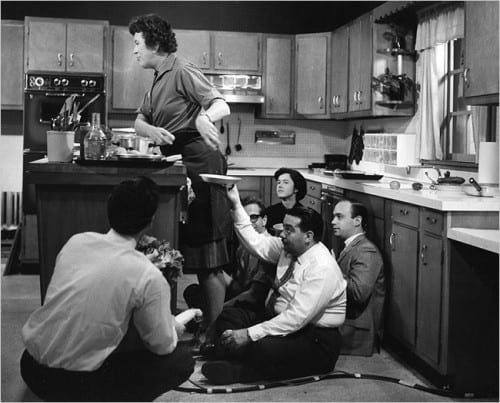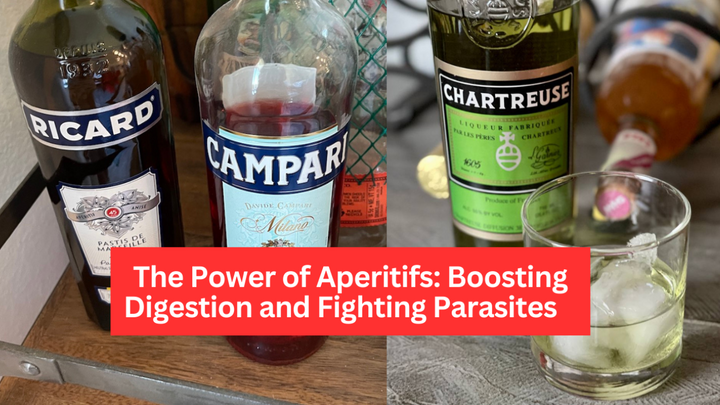Movie Review: Julie & Julia
I got to see the new movie, Julie & Julia, over the weekend. While I enjoyed the film, I can’t say I loved it.

I got to see the new movie, Julie & Julia, over the weekend. While I enjoyed the film, I can’t say I loved it.
What I loved: Meryl Streep’s brilliant performance as Julia Child. Stanley Tucci as Julia’s husband, Paul Child. Getting to watch the story of Julia Child on the big screen — all the challenges she had and how bravely she faced them. The food. All the talk of food. And all the fabulous outfits and settings. Such fun!
What I didn’t love: The whole Julie Powell storyline.
Julie Powell was the blogger who, in 2002, decided to cook all 524 recipes in Julia’s classic cookbook, Mastering the Art of French Cooking in just 365 days. She wrote about it on her blog, which was later turned into a book.
Honestly, if I could have just watched the Julia Child story, it would have been a much better movie.
Why? Not because Amy Adams wasn’t good. I thought she did a fine job. She’s no Meryl Streep (alas, who is?), but she was great in her role.
Food critic, Russ Parsons of the LA Times summed it up best about when he wrote about Amy Adams ability to make us like Julie Powell’s character, “That likability is no small trick when playing a character whose main literary attribute was pretty much one endless whine.”
Russ Parsons was the reporter who, in real life, sent a printed copy of Julie Powell’s blog, “The Julie/Julia Project” to Julia Child before she died. There’s a scene in the movie where Julie Powell gets a call from a reporter letting her know what Julia Child thought of her blog. Julia was not impressed.
Russ Parsons shared Julia’s reaction in his article in the LA Times this week:
There was a silence as she gathered her thoughts. Then in that familiar reedy voice she nailed the answer: “Well,” she said, “she just doesn’t seem very serious, does she?
“I worked very hard on that book. I tested and retested those recipes for eight years so that everybody could cook them. And many, many people have. I don’t understand how she could have problems with them. She just must not be much of a cook.”
Julia spent an entire decade of her life learning to cook, testing recipes, and writing and rewriting what would become a bestselling classic, and she was subjected to harsh criticism and rejection the entire time. She didn’t have adoring fans writing comments on a blog. She didn’t have famous reporters calling her for interviews. She didn’t have anyone offering to make her life into a movie.
But Julia Powell, after less than a year of cooking Julia’s recipes and writing about it, had all of the above.
Why? Blogging was a brand new medium in 2002. Julie Powell happened to be an early adopter. She was part of a revolution in media. So she got a lot of attention in a short period of time. Her blog and her book were entertaining — but not groundbreaking. It was the medium that was groundbreaking — not Julie Powell’s work.
Julia Child was not just part of a revolution. She created a revolution. If it weren’t for Julia Child, I wonder if we would have had the culinary revolution we have seen in this country (and other countries) over the past few decades. Julia inspired so many people — Chef Alice Waters, Martha Stewart, and generations of countless chefs and foodies — to learn to love food and cooking and to take it seriously.

What Julia Child did for the world of cooking and eating is monumental. She saved food from its near demise amidst the takeover of modern convenience food: TV dinners, boxed cereal, cake mix. She reminded people of how important food is, how lovely it is to cook and eat, and how vital it is to community and to life.
When we were watching Julie & Julia, my husband and I rolled our eyes and sighed every time Amy Adams as Julie Powell whined and cried and fell on the floor. He did his impression of Livy Soprano, “Oh, poor you!”
Compare this to Meryl Streep as Julia Child, upon finding out that the book she spent almost a decade writing had been rejected by the publisher. Her reaction: “Eight years of my life. It just turned out to be something to do, so I wouldn’t have nothing to do. Oh, well. Boo-hoo. Now what?”
After the movie, my husband asked, “How come it isn’t called “Julia & Julie” instead of “Julie & Julia”? I think he was trying to say that Julia Child is so much more important than some blogger named Julie. I agree.
But I guess that’s the point. Julie Powell, in the book (which I read) and the movie, seemed totally self-absorbed and histrionic, literally throwing herself on the floor when something flopped in the kitchen.
I’m no chef, but having written a cookbook, working on another, and keeping up this blog, I do a heck of a lot of cooking and recipe testing. And it ain’t always easy. Although I’ve never flung myself on the floor, I do my share of screaming and cursing. But isn’t that true of many chefs? Gordon Ramsay and Martha Stewart are known, respectively, for their cursing and bitchiness. (I have a friend who used to be a chef in New York City. I worked with him at an interactive advertising firm. He said, “My job is a lot like my old job as a chef. I just yell a lot less.”)
Don’t get me wrong — I’m not denigrating Julie Powell. I’m grateful that she did what she did by blogging about Julia Child. I’m glad she put the spotlight back on Julia, and glad this movie was made.
But I wonder… if she hadn’t blogged and hogged the spotlight, perhaps a more serious film would have resulted. Instead of flavor of the week, Julie Powell, getting a book and movie deal, maybe we would have seen a better movie come out — one based solely on Julia’s memoir, My Life in France. That book was published a few years after Julia Child’s passing in 2004. Well after Julie Powell had inked her book deal and, I’m sure, optioned the movie.
If only I had been able to enjoy a full two hours of Meryl Streep as Julia Child. I wanted to know more about what she went through, see more of her relationship with her husband Paul, hear more of her delightful sense of humor. I wanted to watch what happened when she got the PBS deal and find out what it was like to do a cooking show. I wanted so much more.
Julie Powell? Not so much.
Read Russ Parsons’ article in the LA Times to read they whole story about what Julia Child said and his thoughts.
Photo credit: Sony Pictures; Paul Child/Schlesinger Library, Radcliffe Institute, Harvard University



Comments ()